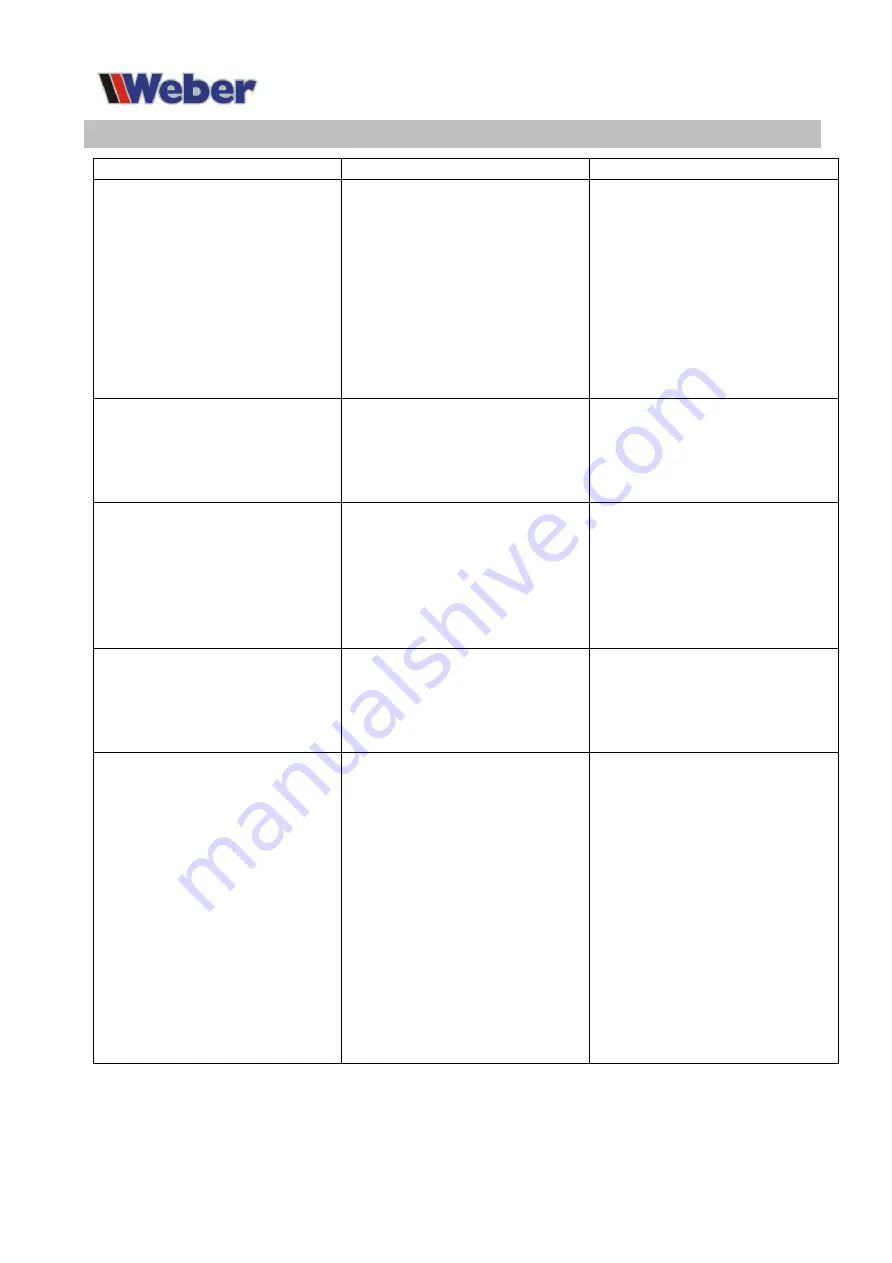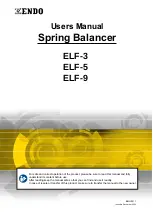
-18 -
Symptom
Cause
Solution
No signal on the display
after switching on.
1. Power supply failure.
2. The machine power
supply unit is
defective.
3. Incorrect connection
between circuit board
and power supply.
4. Failure of the motherboard.
1. Check the external
power supply.
2. Replace the power supply
unit.
3. Check both the
connection cables and
the plug connectors.
4. Replace the
motherboard.
The buttons "START", "Dis",
"Br" and "Slide" do not
accept input.
1. Plug connectors are loose.
2. Main board defective.
1. Remove the cover from
the machine and check
the internal plug
connection.
2. Replace the motherboard.
The display is fine, but
the brake does not work.
1. loose connection between
motherboard and power
supply.
1. Restore the cable/plug
connection between
motherboard and power
supply.
2. Replace the power supply.
3. Replace the motherboard.
2. Power supply defective.
3. Defective motherboard.
Number of revolutions too
low, brake error, inaccuracy
in balancing.
Drive belt too loose.
Open the machine, tighten
the drive belt. The motor
and drive belt are precisely
matched.
Incorrect balancing values.
1. The machine is set up
unstably.
2. Wheel not tight enough.
3. Power supply in the
machine is defective.
4. Too many voltage
fluctuations in the power
supply.
5. The calibration has
changed.
1. Set and confirm
according to the
instructions.
2. Loosen the wheel and
tighten it again.
3. Check all electrical
connections in the
machine.
4. Security of compliant
energy supply systems.
5. recalibration of the
machine according to
the operating
instructions.
Troubleshooting must be carried out by qualified personnel. If necessary, the instructions
and permission of the after-sales service prior authorization must be requested.
Malfunctions: diagnosis & troubleshooting

















